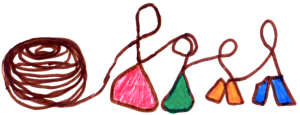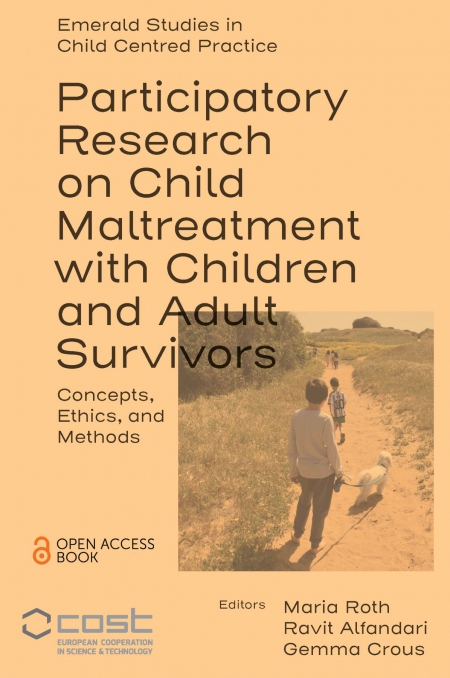Etiketa: Jolka Nathanaili Penotet
Bienvenue sur mon site
Je suis psychologue clinicienne et psychothérapeute diplômée de l’Université Paris VII Diderot.
Depuis 18 ans j’exerce auprès des enfants, des adolescents et des adultes. J’ai travaillé dans des contextes linguistiques, culturelles et identitaires diverses : aux Etats Unis, en Albanie et en France. Par ces expériences, j’ai développé un intérêt pour la différence qui se reflète dans ma pratique.


Participatory research on child maltreatment and adult survivors
https://www.emerald.com/insight/publication/doi/10.1108/9781804555262?utm_source=smc_email_onboarding&utm_medium=email&utm_campaign=apa_author_books_access_2023-10-9
The ebook edition of this title is Open Access and freely available to read online. Enriching ongoing debates about participatory research in the field of child maltreatment, this book highlights the advantages that participation as a human right can bring to the community of researchers and helping professionals.
 Art and Action: What Participatory Action Research With Adult Survivors Must Address
Art and Action: What Participatory Action Research With Adult Survivors Must Address
 Art and Action: What Participatory Action Research With Adult Survivors Must Address
Art and Action: What Participatory Action Research With Adult Survivors Must Address
Authors : Alex Stern, Jolka Nathanaili-Penotet
Through research on child sexual abuse (CSA) and adult survivors, knowledge is gained. This knowledge might support decisions – whether political, professional or otherwise – that affect the lives of children who are victims of CSA and adult survivors. Additionally, this knowledge influences what the public knows about CSA and adult survivors and as a consequence, how child victims of CSA and adult survivors are treated in everyday life. Given the huge impact research can have on survivors’ lives, this chapter raises the question of what aspects of CSA and survivorship are relevant for survivors from survivors’ perspective and whether these aspects can be addressed by Participatory Action Research (PAR) as a research paradigm. To identify relevant aspects, survivors’ artwork is analysed because art is a way to contribute to public discourses with very little regulation. For analysis, the Sociology of Knowledge Approach to Discourse is used. In this chapter, we introduce basic theories of knowledge from a constructivist perspective in a short background section and explain the aim and method of analysis. Afterwards, we present some key aspects of survivors’ art on CSA and survivorship: The invasiveness of CSA, speech, the symbolic violence behind physical abuse and issues of injustice and responsibility are discussed. Additionally, the discursive relation between artists and audience is of interest to finally answer whether – and, if so, why – PAR is an appropriate research paradigm to address these aspects.
Survivors’ Art as Data: The Artists
As examples of survivors’ art, two samples were chosen whose creators gave open access to full or parts of their art catalogues and statements about their work and who are survivors of CSA. Renate Bühn (2022) is an artist, activist and social worker. Nozibele Meindl (2022a) is an artist, activist and digital multimedia visual artist. Although both artists currently live in Germany, where Bühn grew up, Meindl grew up in South Africa during apartheid. Both artists engage in a survivors’ council from Bremen for better implementation of the Istanbul Convention. Meindl describes herself as a ‘social commentator, critiquing violence, loss, death and the strength of community in the face of disaster’ (Meindl, 2022a, p. 1), inspired, among others, by psychoanalysis and Xhosa culture. Apart from raising awareness overall, through her work, Bühn is ‘looking closely at hidden realities’ (Koch, 2017), targeting the protection of perpetrators by individuals, organisations and society as well as bystanders’ indifference.ISBN: 978-1-80455-529-3, eISBN: 978-1-80455-526-2
Open Access. Publication date: 4 October 2023
https://www.emerald.com/insight/content/doi/10.1108/978-1-80455-526-220231015/full/pdf
